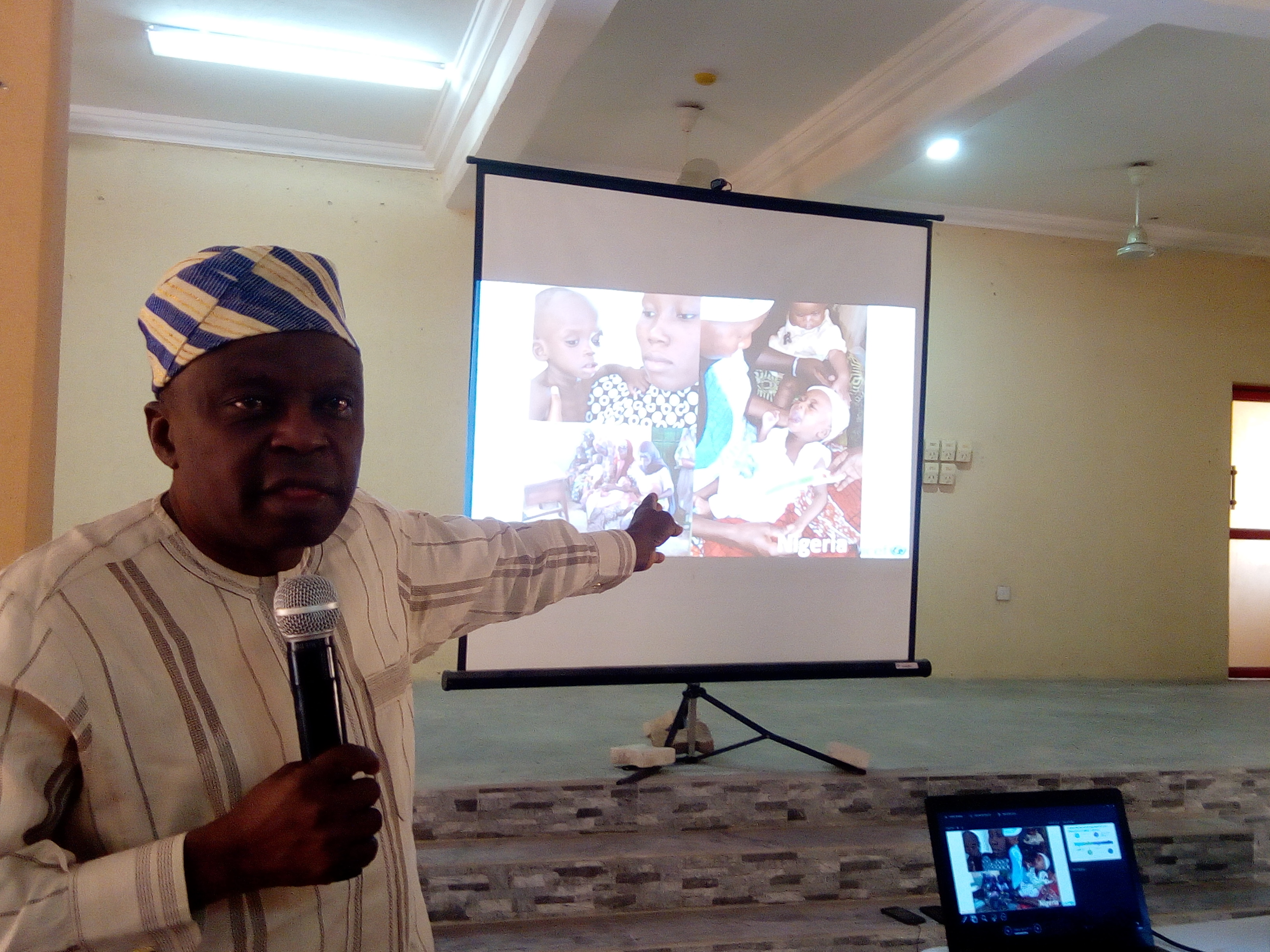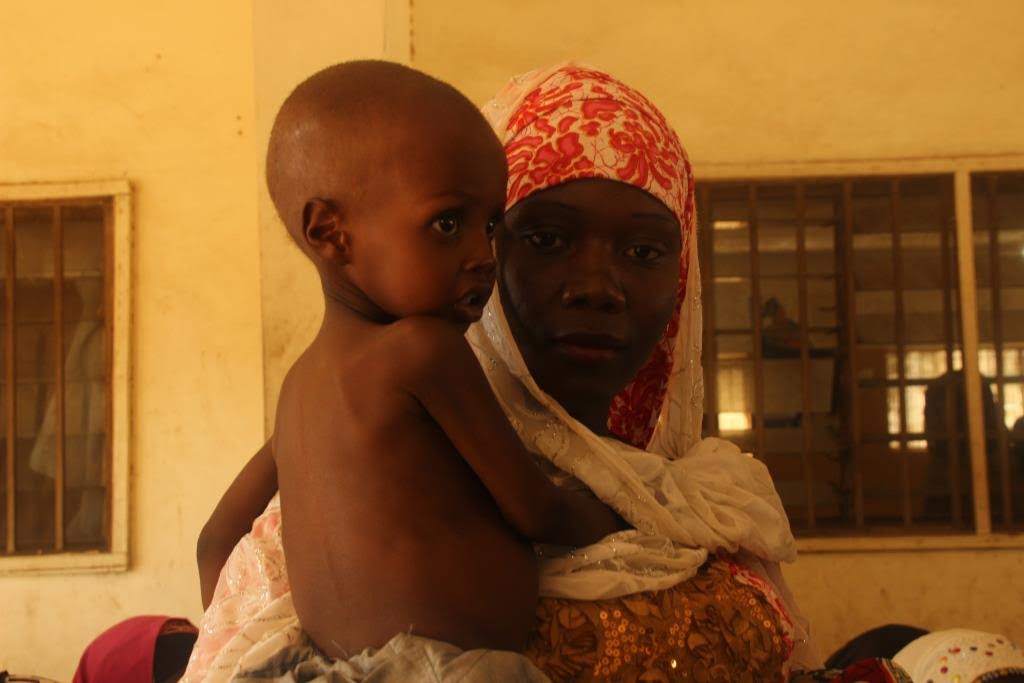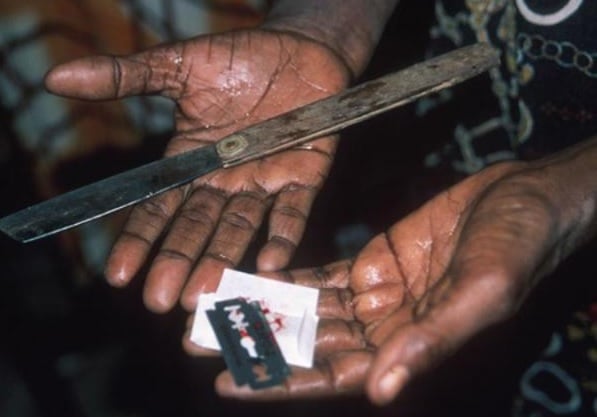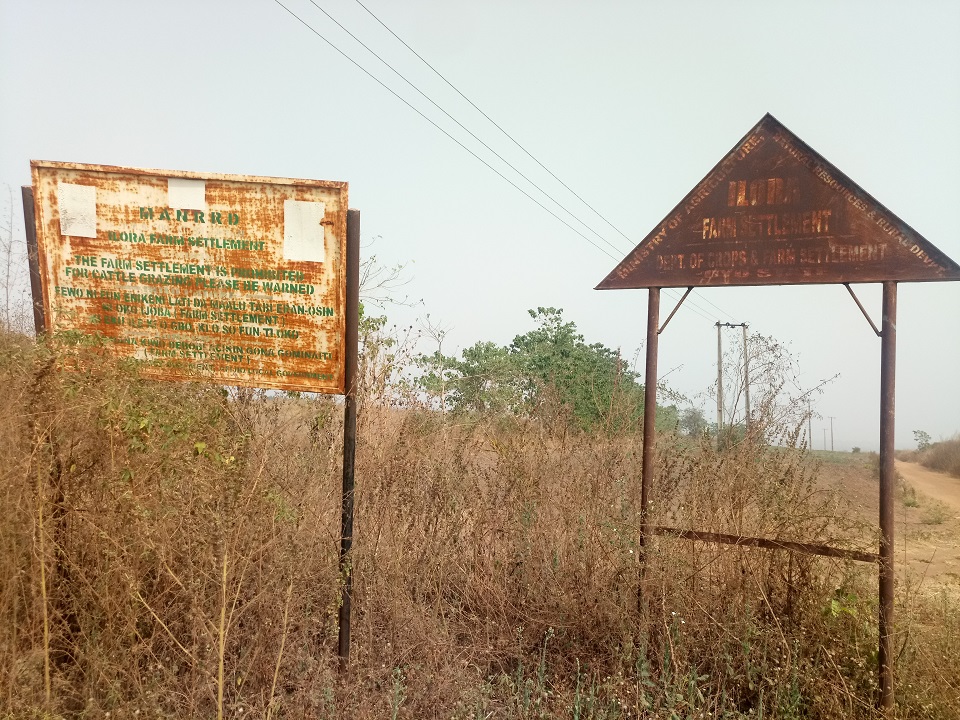Nutrition consultant, Davis Bamidele Omotola, was succinct and straight to the point at the two-day UNICEF and Federal Ministry of Information, Culture-organised Media Dialogue on Child Malnutrition held in Yola, Adamawa State on December 7 and 8.
He described the children malnutrition situation in the north-east of Nigeria as precarious.
“There is no better way to highlight the situation than stating clearly that it is uncertain,” the consultant told a bewildered gathering of over 40 journalists drawn from the print and electronic media across the country at the event.
Insurgent attacks in the north-east, particularly in the Borno area, have left many children afflicted by malnutrition in acute danger. This is worsened by the fact that the attacks can just occur at any time,” he remarked, almost in helpless resignation.
Advertisement
“The unsafe nature of the area has necessitated increase in difficulty of reaching out easily to the affected who would need food and medication and unless government does something urgent about this trend, the mortality rate of malnourished children would sky-rocket in no distant future.”
Omotola, who blames the nine-year insurgency in the zone for the pathetic situation that the children found themselves, said there is little or nothing that the parents can do to ameliorate the condition. “It is almost as if what the insurgents need is basically the same that the children need because whatever measures taken by government to curb the menace always fail to yield necessary results,” he added.
According to Omotola, over 10 million Nigerian children are stunted while 2.5 million others suffer malnutrition.
Advertisement
“It is not peculiar to the north-east but all over Nigeria. Interestingly, the prevalence is even in the north-west as depicted by UNICEF figure which puts it at a staggering 50.8 per cent with north-east following closely at 42.8 per cent, north-central 29.7 per cent, south-west 20.8 per cent, south-south 20.4 and south-east trailing the rest at 17.2 per cent.”
Inadequacy has proved a formidable threat to addressing the malaise, the nutrition expert also says.
“About 500,000 children and over one million women need to be reached for supplementary food through only 650 stabilisation centers created by the UNICEF. This is obviously a shortfall,” he disclosed.
But it is not all gloom as a flicker of hope is achieved by consistent hard work.
Advertisement
“We have embarked on strategic activities that have resulted in building capacity of the health care providers in the affected areas, strengthening capacity for supply chain management, gathering of data and entrenching advocacy to leverage local resources, among others.”
Omotola says an ascertained future is among the impacts targeted, including halving the child mortality rate as well as ensuring that money can be spent more on infrastructure development.
He also contends that the nutrition of Nigeria is too vital to be left to government alone. “More than $100 million is needed to adequately redress especially the situation in the north-east. UNICEF itself requires over $1 billion to address child malnutrition in Nigeria and it has other commitments that could make attaining this quite difficult,” he further said.
“In the short term, government needs to re-order its priorities with a view to making needed impact in intervention efforts on malnutrition. Above all, a social movement is urgently required whereby every segment of the society will be involved for optimum result, especially as our collective future is at stake.”
Advertisement
The consultant tasked the journalists to vigorously campaign to mothers on the need to exclusively breast feed their children. “Reality has shown that there is no alternative to children’s wellbeing and the ultimate wellbeing of Nigeria than for the mothers to feed their babies on only breast milk for six months after birth,” he said.
“The advantages of this practice are enough and need not be over-emphasised. Granted that there are occasions that warrant giving the children supplementary food during the period through illness or other health issues. But notwithstanding, this situation does not last longer. There is absolutely no reason for mothers not to breast feed their babies exclusively as the mothers themselves also stand to enjoy health benefits therein,” he informed the journalists, even as he was corroborated by the Nutrition Officer of the UNICEF, Bauchi office, Dr. Martin Jackson.
Advertisement
“On our part, we encourage pregnant and lactating mothers with a stipend of N5,000 monthly allowance in addition to procurement of Ready To Use Therapeutic Food for children suffering from acute malnutrition. Altogether, we spend about N161,500,000 monthly,” Dr. Jackson, who also works for UK Aid’s Department for International Development (DFID), said.
UNICEF’s Communication Specialist, Dr. Geoffrey Njoku, had earlier welcomed the participants while stressing cooperation which he said was required to achieve the objective of giving adequate life and living to the Nigerian child.
Advertisement
Head, Child Rights Information Bureau (CRIB) at the Federal Ministry of Information and Culture, Olumide Osanyinpeju, also called for joint action, saying that the danger posed to Nigeria by child malnutrition demanded constant contacts among participants.
Advertisement







